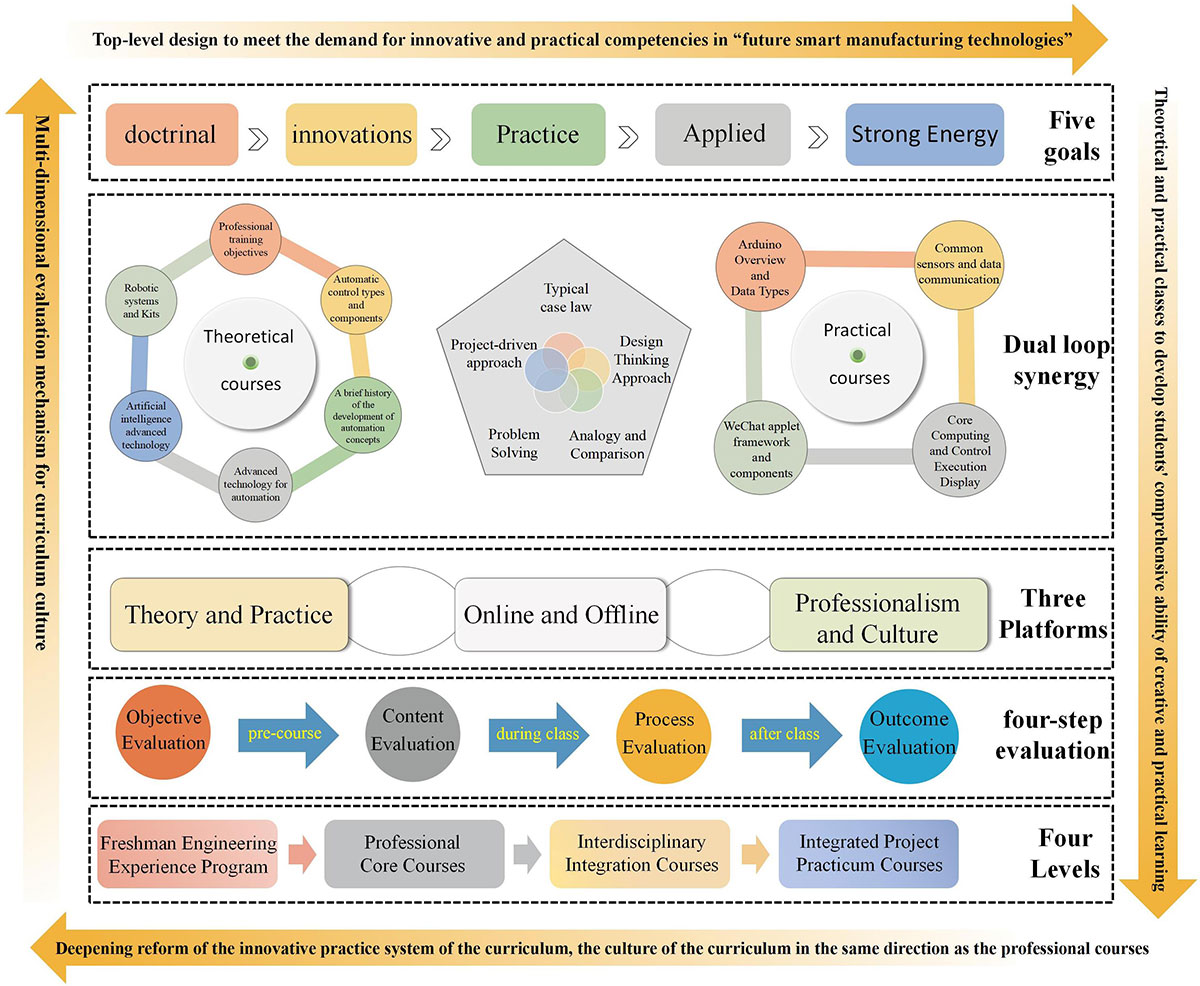Abstract
This paper focuses on the needs of automation professional talent cultivation in the context of the construction of new engineering disciplines, and takes the course “Freshman Engineering Experience” as the research object, and carries out a systematic exploration of teaching reform in response to the problems of insufficient professional cognition and disconnection between theory and practice that exist in the current engineering education. By restructuring the curriculum system, innovating teaching methods and optimizing the practice platform, a progressive cultivation mode of “Cognition-Practice-Innovation” has been constructed. In curriculum design, the combination of professional guidance and engineering practice is emphasized, in teaching implementation, project-driven and teamwork are strengthened, and in practice, the combination of reality and industry-academia synergy is emphasized. Reform practice shows that the model effectively improves students' professional cognitive level and engineering practice ability, and provides useful reference for the cultivation of applied talents under the background of new engineering disciplines, and the ideas of curriculum construction and implementation path formed by the research have reference value for the teaching reform of engineering majors in similar institutions.
Data Availability Statement
Data will be made available on request.
Funding
This work was supported in part by the National Natural Science Foundation of China under Grant 62473008 and Grant 62173007; in part by the Project of ALL China Federation of Supply and Marketing Cooperatives under Grant 202407; in part by the Beijing Nova Program under Grant 20240484710; in part by the Beijing Scholars Program under Grant 099; in part by the Beijing Municipal University Teacher Team Construction Sup-port Plan under Grant BPHR20220104.
Conflicts of Interest
The authors declare no conflicts of interest.
Ethical Approval and Consent to Participate
Not applicable.
Cite This Article
APA Style
Kong, J., Feng, J., Zhang, Q., Su, T., & Jin, X. (2025). Design and Practice of New Engineering Innovation Education for Automation Majors. IECE Transactions on Education and Learning Technologies, 1(1), 1–13. https://doi.org/10.62762/TELT.2025.700195
Publisher's Note
IECE stays neutral with regard to jurisdictional claims in published maps and institutional affiliations.
Rights and permissions

Copyright © 2025 by the Author(s). Published by Institute of Emerging and Computer Engineers. This article is an open access article distributed under the terms and conditions of the Creative Commons Attribution (CC BY) license (
https://creativecommons.org/licenses/by/4.0/), which permits use, sharing, adaptation, distribution and reproduction in any medium or format, as long as you give appropriate credit to the original author(s) and the source, provide a link to the Creative Commons licence, and indicate if changes were made.


 Submit Manuscript
Edit a Special Issue
Submit Manuscript
Edit a Special Issue

 Copyright © 2025 by the Author(s). Published by Institute of Emerging and Computer Engineers. This article is an open access article distributed under the terms and conditions of the Creative Commons Attribution (CC BY) license (https://creativecommons.org/licenses/by/4.0/), which permits use, sharing, adaptation, distribution and reproduction in any medium or format, as long as you give appropriate credit to the original author(s) and the source, provide a link to the Creative Commons licence, and indicate if changes were made.
Copyright © 2025 by the Author(s). Published by Institute of Emerging and Computer Engineers. This article is an open access article distributed under the terms and conditions of the Creative Commons Attribution (CC BY) license (https://creativecommons.org/licenses/by/4.0/), which permits use, sharing, adaptation, distribution and reproduction in any medium or format, as long as you give appropriate credit to the original author(s) and the source, provide a link to the Creative Commons licence, and indicate if changes were made. 